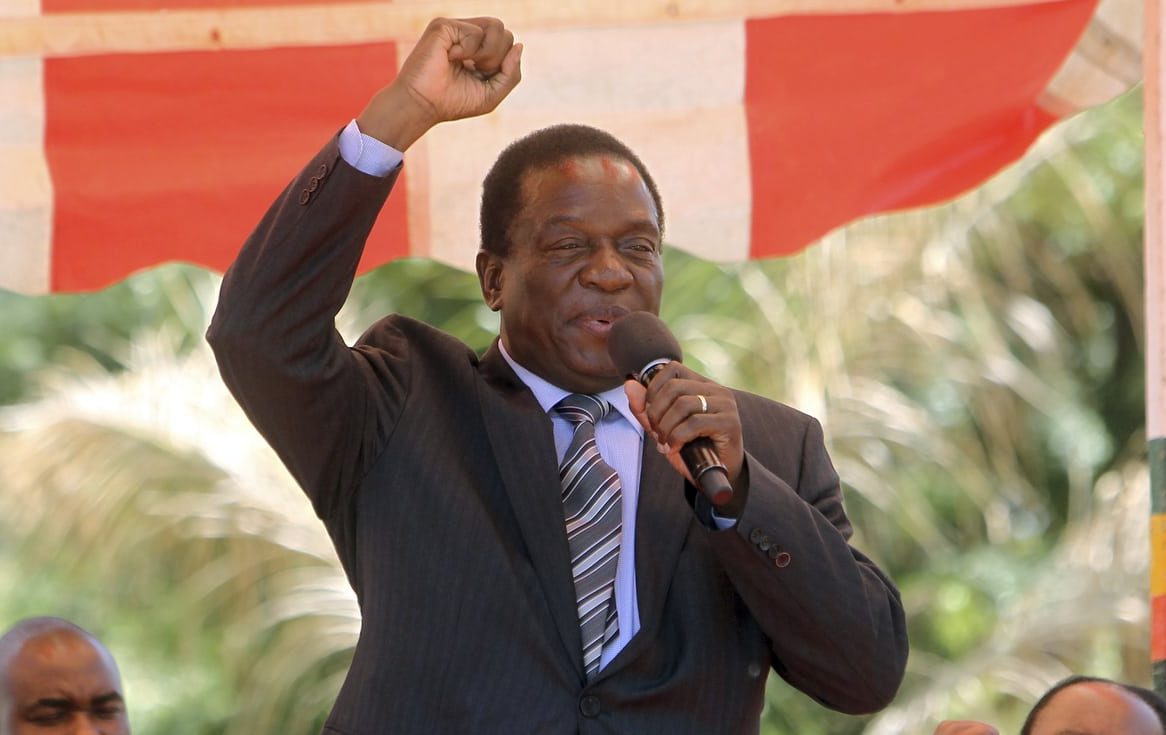In November of 2017, instability in Zimbabwe reached a climax. After 37 years, President Robert Mugabe vacated his executive position in a military-assisted transition to power. Now Emmerson Mnangagwa, the former vice president of Zimbabwe, must navigate a legacy of economic mismanagement, brutal repression, and social unrest. As leader of Mugabe’s former party the Zimbabwe African National Union – Patriotic Front (ZANU-PF), Mnangagwa invites skepticism from his progressive politics to his track record of human rights violations in the 1980s. His nickname, “The Crocodile”, alludes to his political track record and public perception.
Kate Baldwin, a political science professor who studies political accountability, offers a tempered analysis. “There is a significant change in the sense that Mnangagwa is a strong leader able to resolve existing instability,” she notes. In the years prior to Mugabe’s forceful removal from office, infighting plagued the Zimbabwean political landscape. The ZANU-PF party expelled Joice Mujuru, vice president of Zimbabwe from 2004 to 2014, for plotting against Mugabe. Mugabe’s nonagenarian status sparked debates on presidential succession within the ZANU-PF, pitting Mnangagwa against the first lady Grace Mugabe. His dismissal in early November catalyzed the strong-handed response by the security sector. In the immediate aftermath, nearly 100,000 protesters took to the streets of the capital Harare, chanting for Mugabe’s resignation.
Despite existing formal institutional arrangements, district and local level officials rarely exerted the power of their position. Power flows through unofficial channels unchecked due to restrictions on freedom of expression. Mnangagwa possesses the support of the military and the shadowy underside of Zimbabwean politics. “The battle to succeed him will not happen for another 10 years at least,” predicted Baldwin. “The idea that Mnangagwa represents a great democratic reform is a bit unsustainable to me. After the election, the Zimbabwean opposition has fallen apart so their ability to mount a strong challenge is very unlikely.” Civil society groups continue to face harassment and Mnangagwa efforts to consolidate power do not align with the flourishing of strong civil and political society.
Only two months into office, Mnangagwa has made promising overtures to usher in a new era for Zimbabwe’s economic prosperity. The very nature of the presidential transition signals an inevitable shift from Mugabe’s divisive politics. Mnangagwa seems likely to reestablish dialogue with neighboring countries and the international community. These negotiations will entail meeting standards for reduced corruption and adhering to greater protections for political and human rights in exchange for increased access to aid, credit, and favorable trading terms. “It may be optimistic, however, to expect the dismantling of both the security state and the patronage networks that defined Mugabe’s administration in the later years,” notes David Simon, professor of political science with a focus on human rights in Southern Africa. Reforms in external relations do not indicate a restructuring of internal affairs.
The abysmal state of Zimbabwe’s economy—hyperinflation and high underemployment—creates a fertile baseline for improvement. The World Bank attributes economic stagnation to political fragility and a lack of inclusive and competitive investment policies. Mnangagwa neoliberal economics promise to attract foreign investment and alleviate poverty. “In a way, the recovery has already begun if you look at macro figures. What needs to be addressed is the micro side—the standard of living for Zimbabweans currently near or below poverty level,” Simon says.
In a tangible reversal of Mugabe’s legacy, Mnangagwa has begun to return land to white farmers. “From the mid-1990s onward, Mugabe used the white and international community as a scapegoat for the economic hardship the country was experiencing, It makes sense that Mnangagwa will start off by making more positive overtures but then resort back to the same rhetoric that Mugabe made later in his career,” warns Baldwin, “Mugabe often played the race card for unification among blacks against whites who were small in populations but owned a disproportionate amount of land.”
Apart from overtly racial tensions, Zimbabwean politics divide along tribal and sub-tribal identities. The conflict of the 1980s emerged between the Shona and the Ndebele, the two largest tribal groups. Simon notes that the primary beneficiaries under Mugabe were the Shona, especially those from Mugabe’s own tribe. He also echoes Baldwin’s concerns, “We know that fragile regimes in fragile economies may resort to ethnic politics in order to cling to power, and that would not be a surprising development in coming years.”

